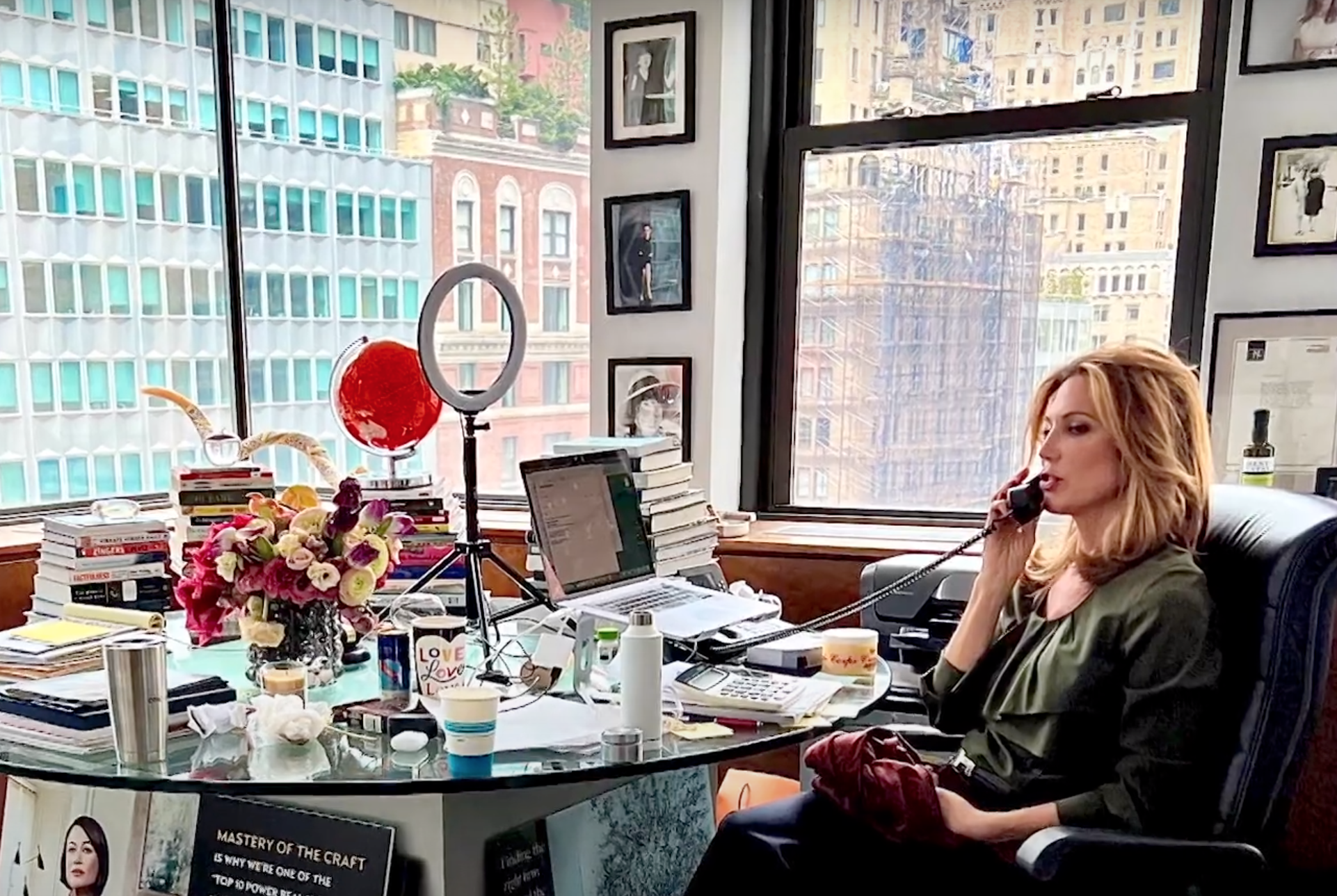Above: Bess Freedman, CEO of Brown Harris Stevens. Photo Credit: Brown Harris Stevens.
As CEO of Brown Harris Stevens, Bess Freedman oversees 50-plus offices and more than 2,300 agents across New York, Connecticut, New Jersey and Florida. An attorney who spent several years as a real estate agent, she is also an advocate for social change through her work with several organizations.
Freedman is on the board of The Bridge, an organization focused on the needs of homeless and housing-insecure, and an advocate for Sanctuary for Families. Before entering real estate, she was an assistant state’s attorney in Maryland, and next worked at Legal Aid fighting for the rights of underserved youth in New York City. She is a frequent guest on business news programs and podcasts, and hosts her own interview show.
In this exclusive interview with RISMedia Senior Editor Michael Catarevas, Freedman provides her thoughts on a wide range of topics, including how she sees the 2023 market playing out, mortgage rates, global issues, working with wealthy clients, and more.
Michael Catarevas: Let’s start with your opinion regarding how you see the 2023 real estate market evolving.
Bess Freedman: After a historic, record-breaking 2021 and strong first two quarters of 2022, there has been a real sea change. I think we are in for a bit of a challenging market, with some sort of a recession, even if it’s mild. I hope inflation continues to trend downward, and would love to see the war in Ukraine end, on a humanitarian level most importantly, but also because of the economic impact it’s having on Europe and the United States.
If the war ends and Americans are more optimistic, then things could get better sooner. Buyers and sellers are in a wait and see mode, with limited inventory on the market. I expect this to continue for the first few quarters of 2023. But this is not a post-global financial crisis. It is a new environment with its own set of challenges. It’s bumpy, but not horrible. We have had much worse rides in the past.
MC: How specifically does the war in Ukraine impact real estate here in the United States?
BF: Even though in the U.S. we’re sort of insulated from international news, and a lot of people only look at what’s happening here, what’s going on in the world has a huge impact. The fact that inflation in places like Europe is 10%, and France is being careful with its electricity, and so many people are struggling…all that has an effect here. You saw it with gas prices, even though they’ve finally started to come down. You can’t hide from the fact that people are dying and suffering and trying to survive in freezing weather. Emotionally, the psychology of that has a trickle-down impact on people. It makes them feel uncertain. When things are good and there’s peace, the American consumer confidence is better. Now it’s tougher times.
MC: What about mortgage rates and their effect on the market going forward?
BF: Even while dealing with a challenging global economy, inflation, higher interest rates and a war, mortgage rates are still low, now under 7% and expected to be in the mid-5% range by the end of 2023. While rates are higher than they were in 2021, lenders are thorough in their lending decisions. The qualifying standards to borrow are much higher. It’s not enough for homebuyers to just hand over W2s and 1099s. You have to ensure having no loose ends, major outstanding debt, etc. Cash buys for those who can afford them will likely be more popular in the next few quarters. The next Fed rate decision is in February, which could determine a lot about the real estate buying season.

MC: Brown Harris Stevens concentrates primarily on markets in New York, New Jersey, Connecticut and Florida, which are fairly wealthy areas. Is there a difference when it comes to selling to very affluent clients as opposed to everyday folks?
BF: I really don’t think there’s a difference, other than maybe real estate investors who are buying to flip. For the most part, we sell homes to people. Big, small, wealthy, first-time homebuyers…they’re really the same except for sometimes a different level of sophistication. Maybe someone has bought many homes and it’s their 10th one, so the process may be a little easier. But it’s still emotional, and a sacred process if they are planning to live and have family there. You can’t skip the steps.
It’s probably more meaningful for a first-time homebuyer only because it’s all their savings, usually, and that’s a little scary. The home-buying process is not just about money, per se. It’s about where you’re gonna raise your kids, where life happens for you, where you have quiet. It’s an emotional commodity versus a stock portfolio. You can’t sleep in a stock portfolio. At least not that I’ve heard of!
MC: How did you originally come into the real estate industry?
BF: Early in my career I worked at Legal Aid, and was a prosecutor before that. After I had my daughter, I was supposed to go back to work following maternity leave. It was a grind being in court all day. A friend thought I’d be great at real estate, so I decided to try it. For the next six years I worked as an agent at Corcoran, with clients buying and selling, and loved it.
Soon enough I was asked to get into management there, which was great, and I was happy to transition. To be really good at this job, it’s like trying to teach swimming without ever having put your foot in the pool. You’ve got to have done the strokes and tried it. You may not be the best, but you have to know how it goes. All of our executives at Brown Harris Stevens have been agents at some point in their careers. We all need to understand it. You’re not a spectator. You know what it means when you’re trying to do a deal.
MC: What’s your day-to-day like?
BF: Every day is different. Some are filled with Zooms. I love when I have a lot of agent meetings and interactions in person. I meet with the team a lot, my group of executives. We talk, I get catch-ups from everybody on what’s going on. We have initiatives we are working on, so we do updates. Because people want to meet, I have business lunches a few times a week as well as some night events. For the most part, you will find me in the office grinding every single day. That’s what I do. It’s straight up the truth.
I don’t believe in working from home. For me to be the best me, I need to show up in color and see people and talk to them and touch them and hug them and look in their eyes and ask them what’s going on, and sometimes break bread. To me, that’s culture, and that’s what this business is about. I’m always going to be here.
MC: I see you have your office phone number on the company website page. That’s a little unusual for a CEO, no?
BF: We have 3,000 agents. Being accessible is part of what makes our company. If you’re behind 10 walls and nobody can get to you and it’s ‘don’t bother me, I’m too busy’, then I think you’ve lost a sense of what you do. I’m only in this job because of the people that are here, and I’m accessible to everybody.
MC: How difficult is it to lead a company when the market has slowed down like it has now?
BF: Morale is down, and agents are feeling the impact on their numbers. November and December were not great months. I work closely with Alan Kersner, our COO, and we talk about getting leaner. I don’t mean cutting people, but rather, cutting costs to be really prepared, like we did during the pandemic. I do want to be cognizant of the environment, and agents are worried because the money’s not coming in. And remember…they don’t get a paycheck. They only get to eat what they kill. I’m trying to keep people optimistic, be supportive and listen. I think agents can provide even more value in a tougher market because in a crisis, there’s opportunity.
MC: Do you worry about losing agents?
BF: Agents come and go. I tell them to do what they have to do to make themselves better. It’s hard to let them go, but you do. I always say take the high road, because there’s no traffic up there. It’s much better up there, and I’m traveling the high road. It feels better when you live in a state of love instead of anger. Life’s too short.
MC: Is it even more challenging for prospective buyers after such a down year in the stock market?
BF: It’s always harder when your portfolio has dropped. But like everything, it’s never as bad as you think it is. It vacillates between being not so bad to not so great. People often think it’s the best in the world or the worst in the world. It’s not either. We’re floating around okay.












